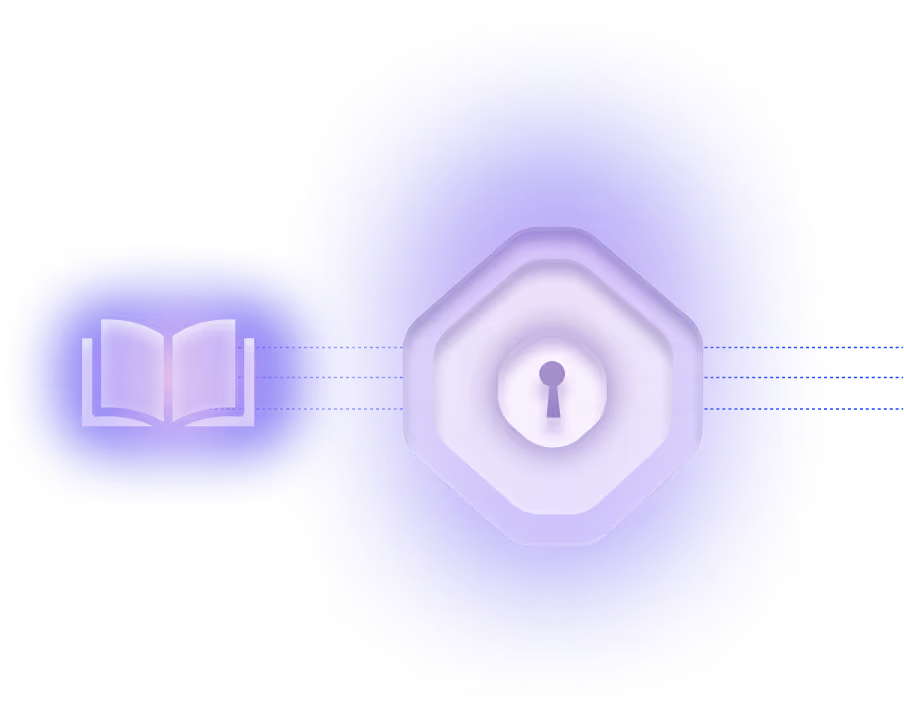Vault Certificate

What is a vault certificate?
A vault certificate is an X.509 digital certificate issued and securely managed by a central secrets management system—commonly referred to as a "vault"—such as HashiCorp Vault, Azure Key Vault, or AWS Secrets Manager. These certificates serve as cryptographic credentials for authenticating Non-Human Identities (NHIs) like service accounts, containers, microservices, and IoT devices. Vault certificates are used to enable secure, encrypted communication between systems via mutual TLS (mTLS), binding machine identities to verifiable cryptographic keys within a Public Key Infrastructure (PKI).
Why is it important?
Vault certificates are critical in modern cybersecurity because NHIs typically do not support traditional human-centric controls like multi-factor authentication (MFA). Certificates provide a strong, policy-enforced mechanism to establish trust between machines, enforce least privilege, and reduce reliance on static credentials like hardcoded API keys. When managed through a secure vault, certificates can be dynamically generated, automatically rotated, and promptly revoked—significantly reducing the attack surface associated with privileged NHIs and mitigating risks such as credential leakage, privilege escalation, and lateral movement.
What are common applications or use cases?
In practice, vault certificates are widely used to secure microservice communications in Kubernetes, authenticate workloads to cloud services, and enable encrypted API-to-service communication. For example, an ephemeral certificate issued by HashiCorp Vault may authenticate a CI/CD pipeline to deploy infrastructure, expiring automatically after task completion. Similarly, Azure Key Vault can issue short-lived certificates for virtual machines, ensuring they only access resources during their operational window. Vault certificates also play a key role in securing zero-trust architectures by providing verifiable, context-aware credentials.
What is the connection to NHIs (Non-Human Identities)?
Vault certificates are purpose-built for securing NHIs, which now outnumber human accounts in enterprise environments by more than 10 to 1. Given NHIs’ automated, distributed, and often ephemeral nature, vault certificates offer a scalable solution for identity verification, access control, and secure communication. They support automated lifecycle operations—including issuance, renewal, and revocation—tailored to the operational dynamics of machine identities. This enables consistent enforcement of NHI-specific policies across hybrid and multi-cloud environments.
Are there any notable industry data, trends, or standards?
Yes. Industry research indicates that over 68% of cloud breaches involve compromised or mismanaged machine credentials, many of which could be prevented through certificate-based authentication. Leading vault platforms now support certificate policy-as-code, role-based access control, and integration with compliance frameworks such as NIST 800-63, SOC 2, and GDPR. Additionally, organizations are preparing for post-quantum cryptography by exploring hybrid certificates that combine classical and quantum-resistant algorithms, a development already underway in extensible PKI systems like HashiCorp Vault.
What is the broader impact or takeaway?
Vault certificates are foundational to securing machine-to-machine communication in cloud-native architectures. By replacing static secrets with verifiable, short-lived certificates managed via centralized vaults, organizations can reduce their risk exposure, enforce least privilege, and streamline compliance. As NHIs continue to proliferate, vault certificate adoption becomes not only a best practice but a strategic imperative for enterprises seeking to operationalize zero trust, automate identity governance, and future-proof their infrastructure against emerging threats.





